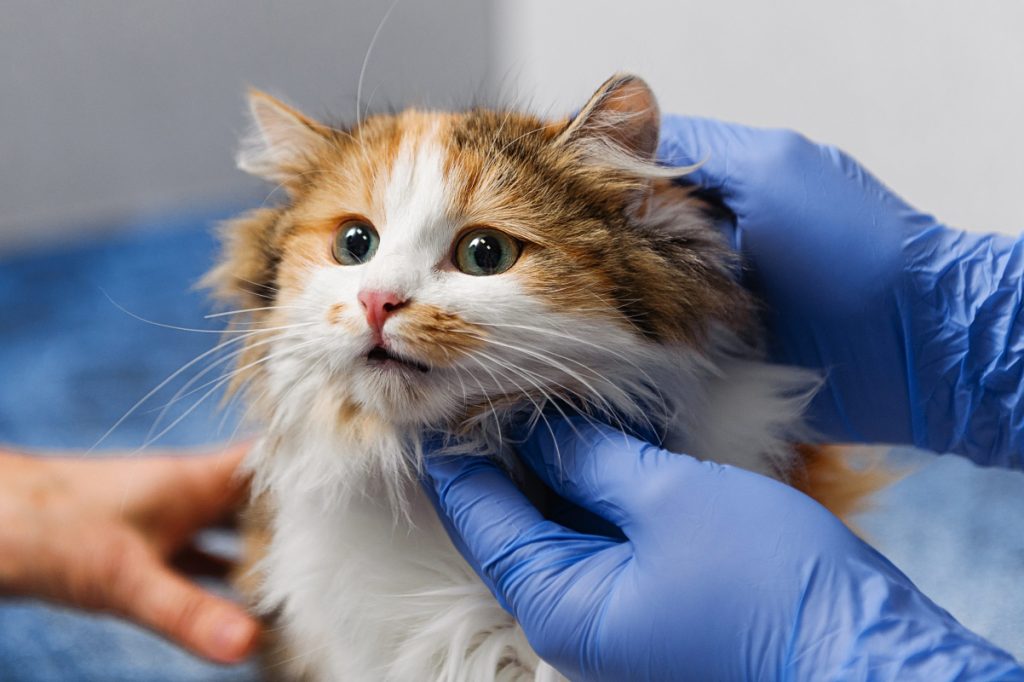5 Most Common Ailments in Cats (Florida)

Due to the particular environmental conditions and regional factors of Florida, some specific ailments become more common in cats than in other areas of the country. Here are the 5 most prevalent health issues in Florida felines, the symptoms to watch for, and possible treatments.
- Heartworm Disease: Florida’s warm, humid climate makes it a haven for mosquitoes, which are the primary transmitters of heartworms. Symptoms of heartworm disease in cats can be very subtle or very dramatic. These symptoms can include coughing, asthma-like attacks, periodic vomiting, lack of appetite, weight loss, or sudden death. Due to the seriousness of the disease, prevention is key, and there are several effective options available. Consult with your local veterinarian or the Dunedin Animal Medical Center for the best preventive heartworm treatments for your cat.
- Flea Infestations: Fleas thrive in warm climates, making them a year-round concern for Florida cat owners. Constant scratching, bald spots, and small black specks on your cat’s fur (flea feces) are signs of a flea infestation. Fleas can cause discomfort, anemia, and can also carry diseases. Over-the-counter flea treatments and prevention measures can be effective, but for severe infestations, it’s recommended to seek professional help.
- Heat Stroke: Florida’s high temperatures can lead to heat stroke in cats, especially for those who are older, overweight, or have underlying health conditions. Signs include panting, excessive grooming, lethargy, and even collapse. If you suspect heatstroke, move your cat to a cooler area, offer cool (not cold) water, and wet their fur with lukewarm water. This situation is a genuine emergency and requires immediate veterinary attention.
- Skin Cancer: Just like humans, cats can also get skin cancer from excessive exposure to the sun. White or light-colored cats are especially susceptible. Signs include sores that don’t heal, unusual growths, and changes in skin color. If you suspect skin cancer, take your cat to a vet immediately. Prevention measures include limiting sun exposure, especially during peak hours, and using pet-safe sunblock for cats.
- Upper Respiratory Infections: Upper respiratory infections (URIs) are quite common in Florida cats, largely due to the large stray and feral cat populations. Symptoms of a URI include sneezing, runny nose, watery eyes, and sometimes a fever or loss of appetite. While mild cases may resolve on their own with good home care, more severe cases, or those in kittens or elderly cats, should be treated by a veterinarian. Vaccination is the best form of prevention against these infections.
Florida’s unique climatic and environmental factors pose certain health challenges for cats. Preventive measures such as regular vaccinations, controlling parasites, and providing shade and hydration can help protect your feline friend from these common ailments. For severe cases or when in doubt, don’t hesitate to contact a veterinary professional. Dunedin Animal Medical Center offers comprehensive care and expertise in handling these and many other feline health issues. By understanding these common ailments, you can ensure that your cat stays as bright and sunny as the state they call home. Remember, regular check-ups with your vet are vital for early detection and treatment of these conditions.
For more tips on taking care of your cat or dog in Dunedin or surrounding areas, read more article in our blog.